
Mid-Season Pest Management Impact on Soybean Seed Quality
This posted was authored by Kelly O’Reilly, an interdisciplinary PhD candidate in the Crop and Soil Sciences Department, who …


El inglés es el idioma de control de esta página. En la medida en que haya algún conflicto entre la traducción al inglés y la traducción, el inglés prevalece.
Al hacer clic en el enlace de traducción se activa un servicio de traducción gratuito para convertir la página al español. Al igual que con cualquier traducción por Internet, la conversión no es sensible al contexto y puede que no traduzca el texto en su significado original. NC State Extension no garantiza la exactitud del texto traducido. Por favor, tenga en cuenta que algunas aplicaciones y/o servicios pueden no funcionar como se espera cuando se traducen.
Inglês é o idioma de controle desta página. Na medida que haja algum conflito entre o texto original em Inglês e a tradução, o Inglês prevalece.
Ao clicar no link de tradução, um serviço gratuito de tradução será ativado para converter a página para o Português. Como em qualquer tradução pela internet, a conversão não é sensivel ao contexto e pode não ocorrer a tradução para o significado orginal. O serviço de Extensão da Carolina do Norte (NC State Extension) não garante a exatidão do texto traduzido. Por favor, observe que algumas funções ou serviços podem não funcionar como esperado após a tradução.
English is the controlling language of this page. To the extent there is any conflict between the English text and the translation, English controls.
Clicking on the translation link activates a free translation service to convert the page to Spanish. As with any Internet translation, the conversion is not context-sensitive and may not translate the text to its original meaning. NC State Extension does not guarantee the accuracy of the translated text. Please note that some applications and/or services may not function as expected when translated.
Collapse ▲
This posted was authored by Kelly O’Reilly, an interdisciplinary PhD candidate in the Crop and Soil Sciences Department, who …

On March 1st, we gathered with nearly 150 producers, researchers, and industry professionals at the University of Mount Olive …

On March12 a team of Extension Specialists from NC State University delivered a webinar to provide data-driven information on …

Carolina Farm Stewardship Association will be hosting six organic focus groups within North Carolina and South Carolina for producers …

Soybean seeding rate decisions have become more nuanced due to rising seed costs and shifting management strategies. The wide …

N.C. Cooperative Extension and the NC Soybean Producers Association co-hosted regional Soybean Schools across the state in early 2024. These …

A team of Extension Specialists from NC State University will deliver a webinar on March 12 to provide data-driven …

by D. Reisig, A. Post, and Ryan Heiniger Hessian fly is a serious pest of North Carolina wheat. A description …

We’re looking forward to co-hosting the Organic Commodities and Livestock Conference with Carolina Farm Stewardship Association on March 1st, …

Science for Success is hosting a three-part webinar series to discuss strategies farmers can utilize to optimize soybean yield. …

The NC State Soil Microbiome Extension program conducted microbial product field trials across North Carolina in 2023. Microbial inoculants …

What is the Soybean On-Farm Trial Program? The North Carolina Soybean On-Farm Trial (OFT) Program was initiated in 2020 …

You have probably heard the news about the federal court in Arizona vacating the labels for over the top …

The NC State Soybean Extension and Pathology programs conducted foliar fungicide trials across North Carolina in 2023. Field trials …
The 2023 North Carolina Corn Yield Contest Results are now available. See the results under the Corn Yield Contest …

Join NC State and Carolina Farm Stewardship Association for the 2024 Organic Commodities and Livestock Conference! This year we’ll be …

We increasingly get questions about the impact of soybean growth habit on soybean yield. Soybeans have two growth habits: …
Mr. Brian Pasternak with the US Department of Labor will participate in the February 2nd Tobacco GAP meeting in …

Obtaining a certain plant height in soybean production is important to maximize yield potential and Dr. Dunphy would famously …

The 2023 North Carolina Soybean Yield Contest results are available at the Soybean Yield Contest. Winners were announced at the NC Commodity …
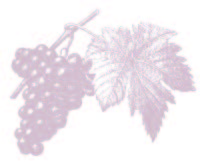
Grapevines require 16 essential nutrients for normal growth and development (Table 9.1). Carbon, hydrogen, and …
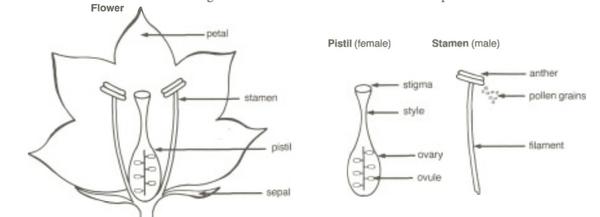
This guide presents basic facts about seeds, including how they develop, how to store and …
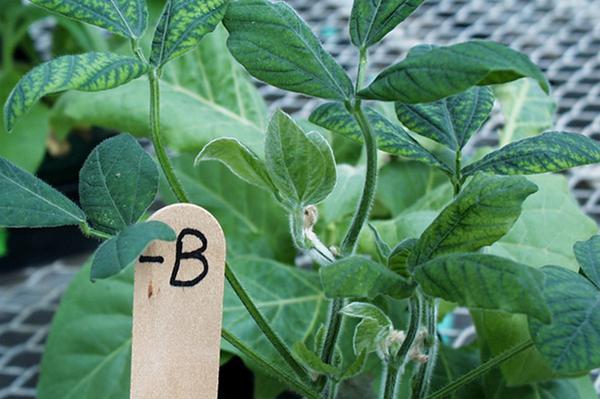
This Soybean Nutrient Deficiency Information factsheet describes the symptoms and management of boron deficiency in …
This Soybean Nutrient Deficiency Information factsheet describes the symptoms and management of zinc deficiency in …

This Soybean Nutrient Deficiency Information factsheet describes the symptoms and management of molybdenum deficiency in …
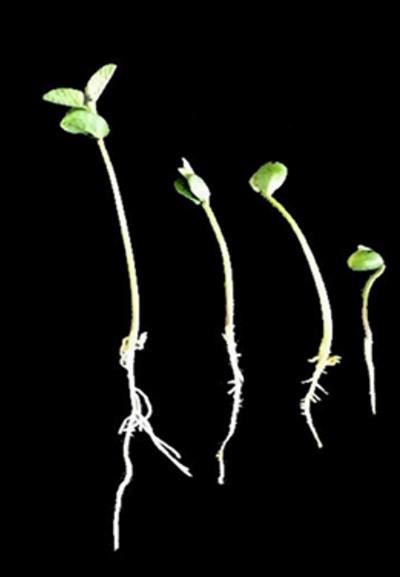
This Soybean Nutrient Deficiency Information factsheet describes the symptoms and management of aluminum toxicity in …
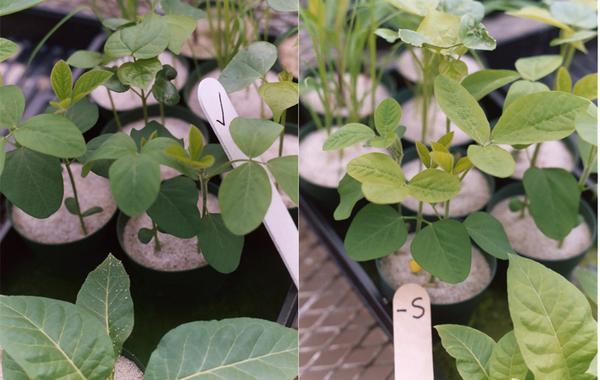
This Soybean Nutrient Deficiency Information factsheet describes the symptoms and management of sulfur deficiency in …

This Soybean Nutrient Deficiency Information factsheet describes the symptoms and management of magnesium deficiency in …